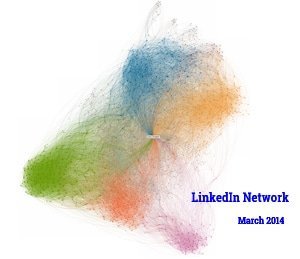Why Executives Need to be Network Leaders
 In this first episode for 2016 for the Let’s Talk Leadership podcast show, I do the following:
In this first episode for 2016 for the Let’s Talk Leadership podcast show, I do the following:
- announce that the show will now be produced every two weeks, not every week as previously
- review a report on leadership – produced some three years ago but in content still very timely
Podcast: Play in new window | Download
Subscribe: Apple Podcasts | RSS
Or you can subscribe via Stitcher Radio or via emailNetworks as Asset Class for the Co-Creator Leader
A model of leadership for the digital age, from The Wharton School, presents four styles of leadership in a historical framework, from commander, via communicator, then collaborator, to co-creator, this last as being the appropriate style for contemporary leadership.
In the model, each style is matched with an asset class. The asset class for the Co-creation style is the network.
I did a presentation on this model last year with a slide deck, as in this video.
The Rise of the Network Leader – Report
 A report from the company CEB provides a new framework for leadership responsibilities, that I believe meshes nicely with the Wharton School model as above, specifically for the Co-Creator leader and with direct reference to the concept of the network (or networks) as the related asset class for that style of leadership.
A report from the company CEB provides a new framework for leadership responsibilities, that I believe meshes nicely with the Wharton School model as above, specifically for the Co-Creator leader and with direct reference to the concept of the network (or networks) as the related asset class for that style of leadership.
The report from CEB, The Rise of the Network Leader: Reframing Leadership in the New Work Environment, is two or three years old now, but still, in my view, very relevant, very timely.
Some key points from the report
Leaders have traditionally have needed to be skilled in two key areas, Transformational Leadership and Transactional Leadership.
The report argues that changes in the work environment require that leaders now must add and apply a third key skillset, that of Network Leadership.
The report writers see this as a major challenge.
CEB Research shows that very few leaders have the competencies and drive necessary to be effective leaders in a more collaborative, networked, and knowledge-based work environment.
They argue that companies and other organizations must rethink and reframe their approach to leadership.
Network Leadership
The report defines Network Leadership:
This role (complementing the roles of Transformational and Transactional Leadership) involves establishing strong network performance by building, aligning, and enabling broad networks both internal and external to the organization. Network leadership is more about influence than control; it is also a more indirect than direct form of leadership, requiring leaders to create a work environment based on autonomy, empowerment, trust, sharing and collaboration.
The report provides (p 15) a useful list of sixteen core competencies critical to effective network leadership.
For anyone who may think this is all fairly obvious and/or that most executives would understand and be good at network leadership, the report has some sobering words.
Unfortunately, many organizations and their leaders are not prepared to develop network leadership capabilities. CEB research has found that roughly 7% of leaders are likely to be strong in all three leaddership roles: transformational, transactional, and network leadership.
The report offers a threefold set of activities for organizations and individuals to step up their game.
- Leaders: manage to a new set of network building activities
- Organizations: apply and build network leadership skills
- Organizations: adopt a portfolio approach to succession.
For individual executives and for organizations, this very clear, very readable report offers research that will be seen by some as discouraging and by others as representing new opportunities to shine and prosper.
Check it out for yourself. It’s only 35 pages and some of those are blank fillers or have graphics. Here’s the link again.
Subscribe and Never Miss an Episode
You can subscribe to the Let’s Talk Leadership podcast show via iTunes, Android, Stitcher, RSS, or
via email.
Des Walsh
Business coach and digital entrepreneur. With coach training from Coachville.com and its Graduate School of Coaching, and a founding member of the International Association of Coaching, Des has been coaching business owners and entrepreneurs for the past 20 years. Over the same period he has also been actively engaged in promoting the business opportunities of the digital economy. He is a certified Neurolinguistic Programming (NLP) coach, and a certified specialist in social media strategy and affiliate marketing.


